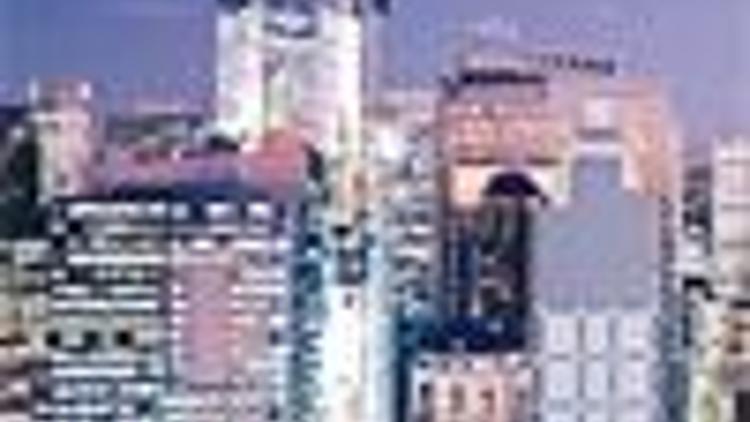NYTimes plan to sell building may disappoint
Güncelleme Tarihi:

NEW YORK - As the USproperty market suffers from a long and painful downturn, New York Times Co.’s plans to cash in on its Manhattan headquarters is in jeopardy. The company is planning to raise up to $225 million from the sale
The New York Times may have missed its chance to cash in on its Manhattan headquarters. The media company’s plan to raise up to $225 million by selling its portion of the 52-story skyscraper and paying rent to stay there may come too late, said Dan Fasulo, managing director at Real Capital Analytics, a real estate data service in New York.
"Buyers do have a certain appetite for leasebacks," Fasulo said in an interview. "The problem is that debt markets are still tied up. It doesn’t matter how many willing buyers you have, if there is no debt available, the deal is not going to happen at a price that the New York Times will be happy with."
Times Co. is raising cash as a $400 million credit line expires in May and the recession pushed November advertising revenue down 21 percent from a year earlier. The third-largest U.S. newspaper publisher may also sell all or part of its 17.5 percent stake in the Boston Red Sox baseball team, a person familiar with the situation said.
Raising capital
The company, owner of The New York Times and the Boston Globe, said on Dec. 9 it could raise as much as $225 million from a sale-leaseback of 620 Eighth Ave. After 10 years, Times Co. would have the right to buy back the building, spokeswoman Catherine Mathis said in an e-mail.
The proceeds from the deal would be used to repay long term debt, which totals about $672 million. The company currently has two $400 million credit lines, and Mathis said that it won’t replace the one that expires this year.
The company cut its dividend last year and said last month "2009 will be among the most challenging years we have faced." The shares dropped 58 percent in 2008. The deal would come five years after Times Co. sold its landmark 1913 neo-Gothic tower near Times Square to Tishman Speyer Properties for $175 million in 2004 only to see them resell it in 2007 for $525 million to Africa Israel Investments, the holding company of Israeli diamond magnate Lev Leviev.
"What a deal that was for Tishman," said Fasulo. "It’s the definition of a home run in this industry. In the Times’ defense, values did escalate very quickly after that." Sale prices for midtown Manhattan offices rose from an average $352 a square foot in 2004 to $752 in 2007. Times Co. owns 58 percent of the new Eighth Avenue tower designed by architect Renzo Piano. Forest City Ratner Cos. owns the rest of the 1.6 million square-foot property.
Times Co. leases six floors of its share of the building to Boston-based law firm Goodwin Procter. The company has no plans to move out of the tower or to rent or buy cheaper offices elsewhere, said Mathis "They are entitled to do what they want with their portion of the building," said Forest City spokesman Jeff Linton. "It’s a two-piece condo."
Trying to attract buyers
Since investors are no longer banking on the value of buildings rising, Times Co. may have to pay a higher rent to attract buyers, said Nat Rockett, a managing director of the capital markets group at Jones Lang LaSalle, the second-largest publicly traded commercial real estate broker.
"What they get will be driven by what they will be willing to pay in rent, and the market will decide the yield and that will set the price," Rockett said.
Capitalization rates on real estate have risen since the peak of the market in 2007 to 6.5 percent to 7 percent from as low as 2.5 percent or 3 percent, he said. Buyers are getting more of their return from rents than from the rising value of property. The cap rate is the building’s annual rent roll divided by its sale price or value.
The success of the sale-leaseback will depend on how confident buyers are of the media company’s future, Fasulo said. "Leaseback deals are almost like corporate bonds," Fasulo said. "You are basically buying a cash flow from the New York Times for 20 or 30 years, and relying on their credit worthiness."

